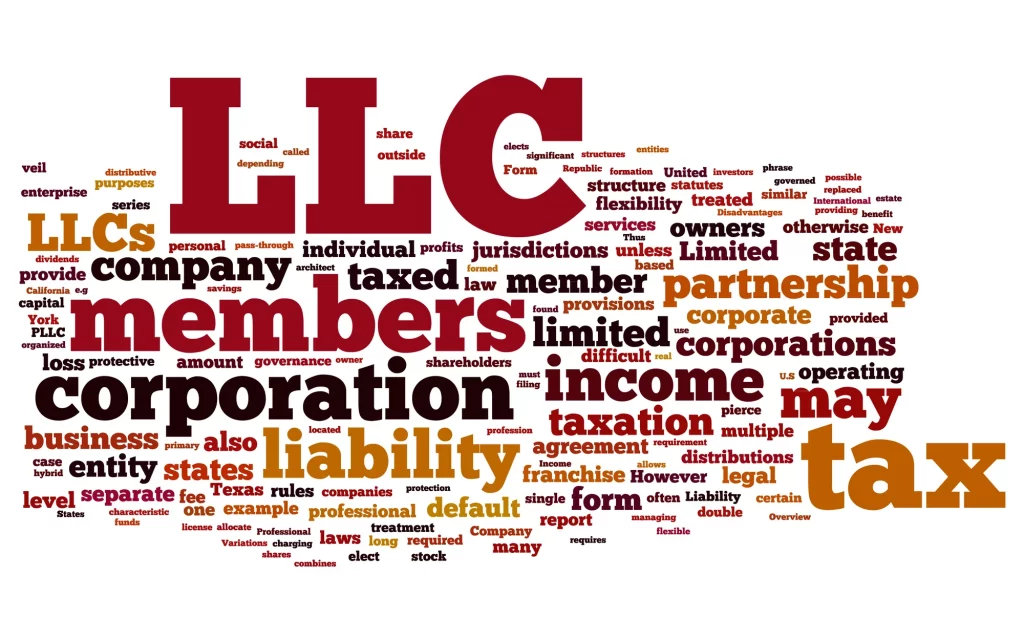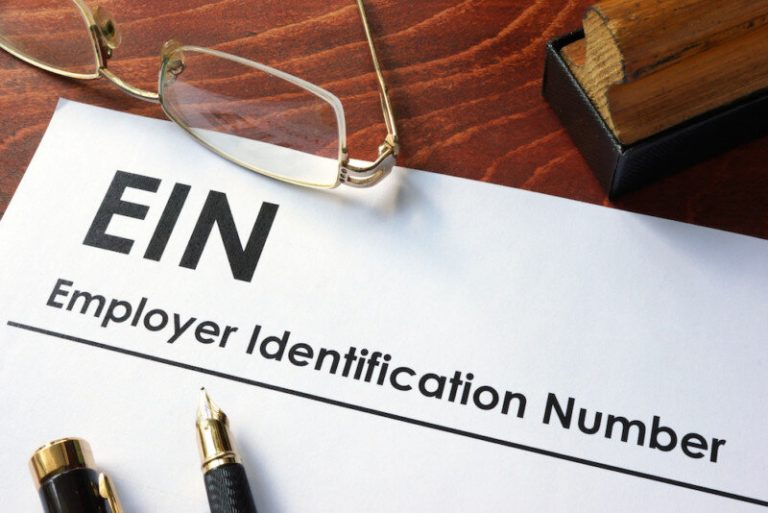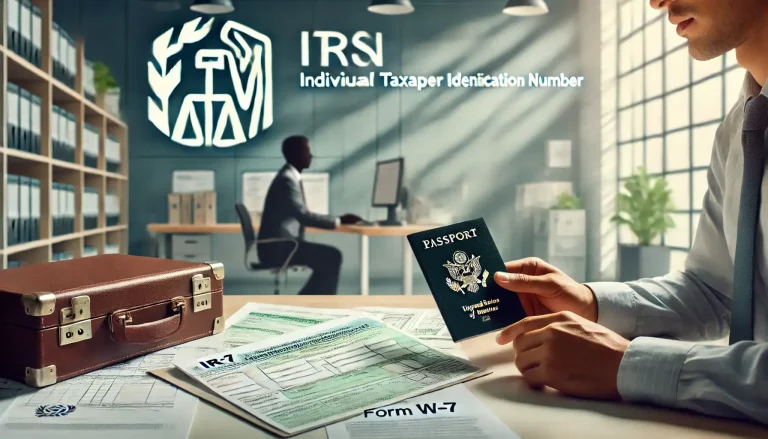how to create an LLC for my business
Forming a Limited Liability Company (LLC) is one of the most popular ways to structure a small business in the United States. It offers a unique combination of liability protection, tax flexibility, and operational ease that appeals to entrepreneurs and small business owners. Whether you are launching a startup, converting a sole proprietorship, or seeking to formalize an existing partnership, understanding how to create an LLC is crucial to laying a strong foundation for your business.
An LLC is a hybrid entity that blends the limited liability features of a corporation with the tax benefits and flexibility of a partnership. This makes it a versatile choice for a wide range of businesses, from solo operations to multi-member ventures. The process of forming an LLC is relatively straightforward, but it does require careful planning and attention to detail to ensure that all legal requirements are met.
In this comprehensive guide, we will walk you through the step-by-step process of forming an LLC, from choosing a business name to understanding the additional considerations you must address after your LLC is established. By the end of this guide, you will have a clear understanding of how to navigate the LLC formation process and the benefits it can offer your business.
Table of Contents

Step-by-Step Guide to how to create an LLC
Forming an LLC involves several key steps that vary slightly depending on your state’s requirements. However, the general process remains consistent across the United States. Below is a detailed, step-by-step guide that will help you navigate the LLC formation process effectively.
Choose a Business Name
Choosing the right name for your LLC is more than just a creative exercise—it’s a crucial legal step in forming your business. Your LLC’s name will be the first impression for clients and customers, and it needs to meet specific legal criteria.
- Brainstorming Ideas: Start by brainstorming a list of potential names that reflect your business’s purpose, values, and market positioning. Consider names that are easy to spell, pronounce, and remember. It’s also wise to think about how your business name will look in a logo, on business cards, and across various marketing materials.
- Checking Availability: Once you have a list of potential names, you need to check if they are available. This involves conducting a search in your state’s business name database, as well as searching for trademarks that might conflict with your chosen name. Many states have an online database where you can easily check name availability. It’s also a good idea to conduct a thorough internet search to ensure no other businesses have a similar name that could cause confusion.
- Reserving Your Name: If your chosen name is available and meets all legal requirements, you may have the option to reserve it with your state. Name reservation is particularly useful if you aren’t ready to file your Articles of Organization immediately but want to ensure your desired name isn’t taken in the meantime. The reservation process varies by state, typically involving a small fee and a simple application form.
Example Table: Name Reservation Fees by State
| State | Reservation Fee | Reservation Period |
|---|---|---|
| California | $10 | 60 days |
| New York | $20 | 60 days |
| Texas | $40 | 120 days |
| Florida | $25 | 120 days |

File Articles of Organization
Filing Articles of Organization is a crucial step in forming an LLC. This document, sometimes called a Certificate of Formation or Certificate of Organization, officially establishes your LLC with the state. Here’s what you need to know:
What Are Articles of Organization?
Articles of Organization are legal documents required to create an LLC. They provide essential information about your business and are filed with the state’s business registration office. Once processed and approved, your LLC is legally recognized.
Required Information
The specific information required on the Articles of Organization can vary by state, but typically includes:
- LLC Name: The name you’ve chosen for your LLC.
- Principal Address: The primary business address for your LLC.
- Registered Agent: The person or business entity designated to receive legal documents on behalf of your LLC. This person must be a resident of the state or a registered agent service.
- Business Purpose: A brief description of the purpose of your LLC. Some states may allow a general statement such as “any lawful business activity.”
- Management Structure: Indicate whether your LLC will be managed by its members (owners) or by appointed managers.
- Duration: Most LLCs are set up to exist perpetually, but you may specify a different duration if applicable.
- Member Information: Names and addresses of the LLC members or managers, depending on your management structure.
Example Table: Required Information by State
| State | Information Required | Notes |
|---|---|---|
| California | LLC Name, Address, Registered Agent, Members | Includes a Statement of Information |
| New York | LLC Name, Address, Registered Agent, Duration | Must also file an initial report |
| Texas | LLC Name, Address, Registered Agent, Management | Must include a Certificate of Formation |
| Florida | LLC Name, Address, Registered Agent, Purpose | Must file an Annual Report later |
Filing Fees and Procedures
Filing fees for Articles of Organization vary by state and can range from $50 to $500. The filing can usually be done online, by mail, or in person at your state’s business registration office.
- Online Filing: Most states offer an online portal where you can submit your Articles of Organization and pay the filing fee. This method is typically the fastest and most convenient.
- Mail: You can also mail your completed Articles of Organization along with a check or money order for the filing fee to the appropriate state office.
- In-Person: Some states allow you to file in person at the state’s business registration office or a local government office.

Create an Operating Agreement
An Operating Agreement is a critical document for any LLC, outlining the management structure and operational procedures of the business. While not always required by state law, having an Operating Agreement is highly recommended to ensure that all members are on the same page and to help prevent potential disputes.
Importance of an Operating Agreement
An Operating Agreement serves several key purposes:
- Clarifies Management Structure: It defines how the LLC will be managed—whether by its members or by appointed managers. This clarity helps in avoiding conflicts and ensures smooth operation.
- Outlines Member Responsibilities: The agreement details the roles, responsibilities, and powers of each member or manager, which helps in delineating authority and decision-making processes.
- Sets Profit and Loss Distribution: It specifies how profits and losses will be distributed among members, which is essential for transparency and fairness.
- Establishes Procedures for Changes: The agreement provides guidelines on how changes can be made, such as adding or removing members, or altering management structures.
- Helps in Dispute Resolution: By outlining procedures for handling disputes and resolving conflicts, the Operating Agreement can help prevent legal issues and maintain harmony among members.
Key Provisions to Include
When drafting an Operating Agreement, consider including the following key provisions:
- Business Purpose: A brief description of the LLC’s business activities.
- Management Structure: Details on whether the LLC is member-managed or manager-managed. Specify the powers and duties of the members or managers.
- Ownership Interests: Information on each member’s ownership percentage and the initial capital contributions made by each member.
- Profit and Loss Distribution: How profits and losses will be divided among members. This can be based on ownership percentages or another agreed-upon formula.
- Voting Rights and Decision-Making: Procedures for voting on major decisions and the voting rights of each member. Specify what constitutes a quorum and the required majority for decisions.
- Member Responsibilities: Outline the duties and responsibilities of each member or manager, including any specific roles or job descriptions.
- Transfer of Membership Interests: Guidelines for transferring ownership interests, including any restrictions or conditions that must be met.
- Dissolution Procedures: Conditions under which the LLC can be dissolved and the procedures for winding up business affairs.
- Dispute Resolution: Methods for resolving disputes between members, such as mediation or arbitration.
Example Table: Key Provisions in an Operating Agreement
| Provision | Details |
|---|---|
| Business Purpose | Describes the business activities |
| Management Structure | Member-managed or manager-managed |
| Ownership Interests | Ownership percentages and capital contributions |
| Profit and Loss Distribution | Method for dividing profits and losses |
| Voting Rights and Decision-Making | Voting rights, quorum, and decision-making process |
| Member Responsibilities | Roles and duties of each member or manager |
| Transfer of Membership Interests | Rules for transferring ownership interests |
| Dissolution Procedures | Conditions and procedures for dissolution |
| Dispute Resolution | Methods for resolving conflicts |

Obtain an EIN
An Employer Identification Number (EIN) is a unique identifier assigned to your LLC by the Internal Revenue Service (IRS). It is used for tax purposes and is essential for various business functions, including opening a business bank account and hiring employees.
What Is an EIN?
An EIN, also known as an Employer Identification Number or Federal Tax Identification Number, is a nine-digit number issued by the IRS. It functions similarly to a Social Security Number for your LLC, but it is used for business rather than personal tax purposes.
Key Uses of an EIN:
- Tax Reporting: Required for filing federal and state tax returns.
- Hiring Employees: Necessary for managing payroll and reporting employee wages.
- Opening Business Accounts: Needed to open a business bank account or apply for business credit.
- Applying for Licenses and Permits: Often required when applying for business licenses and permits.
How to Apply for an EIN
Applying for an EIN is a straightforward process. You can apply online, by mail, by fax, or by phone (for international applicants). Here’s how you can apply:
- Online Application:
- Visit the IRS Website: Go to the IRS EIN Online Application page.
- Complete the Form: Follow the on-screen instructions to complete the application. This method is the fastest and typically provides your EIN immediately upon completion.
- Submit the Form: After completing the form, submit it electronically. You will receive your EIN online.
- Mail:
- Complete Form SS-4: Download and complete IRS Form SS-4, Application for Employer Identification Number.
- Mail the Form: Send the completed form to the address specified on the form. Processing time for mailed applications is typically 4-6 weeks.
- Fax:
- Complete Form SS-4: Download and complete IRS Form SS-4.
- Fax the Form: Send the completed form to the fax number provided on the form. You can expect to receive your EIN within 4 business days.
- Phone (International Applicants):
- Call the IRS: International applicants can call the IRS at +1-267-941-1099.
- Provide Information: Provide the required information to the IRS representative to obtain your EIN.
Example Table: EIN Application Methods
| Method | Description | Processing Time |
|---|---|---|
| Online | Complete and submit via IRS website | Immediate |
| Complete Form SS-4 and mail it to IRS | 4-6 weeks | |
| Fax | Complete Form SS-4 and fax it to IRS | 4 business days |
| Phone (International) | Call IRS and provide information | Immediate (if completed by phone) |

Register with Your State
After obtaining your EIN, the next crucial step in forming your LLC is registering your business with the state. This process involves complying with state-specific requirements to ensure your LLC is legally recognized and in good standing.
State Registration Requirements
State registration requirements vary, but they generally include:
- Filing the Articles of Organization: As previously discussed, you need to file the Articles of Organization with the appropriate state agency, typically the Secretary of State’s office.
- Paying State Fees: Each state charges a fee for processing your registration. Fees can range from $50 to $500, depending on the state.
- Designating a Registered Agent: You must appoint a registered agent to receive legal documents on behalf of your LLC. The registered agent must be a resident of the state or a business entity authorized to conduct business in the state.
- Creating a Business Address: Your LLC must have a physical address where it can receive mail and legal notices. This address is typically included in your Articles of Organization.
- Obtaining State Business Licenses: Depending on your state and business type, you may need to obtain specific state licenses or permits to operate legally.
- Publication Requirements: Some states require you to publish a notice of your LLC formation in a local newspaper. This requirement varies by state and is often a one-time requirement.
Example Table: State Registration Fees and Requirements
| State | Registration Fee | Additional Requirements |
|---|---|---|
| California | $70 | Statement of Information filing required |
| New York | $200 | Publication requirement; Initial Report needed |
| Texas | $300 | No publication requirement |
| Florida | $125 | Annual Report required |
Fees and Procedures
- Determine the Fee: Check the specific fee for your state and method of filing. Most states provide a detailed fee schedule on their Secretary of State or business registration websites.
- Choose Your Filing Method: Decide whether you will file online, by mail, or in person. Online filing is typically the fastest option.
- Submit Required Documents: Along with your Articles of Organization, you may need to submit other forms or documents specific to your state.
- Pay the Fee: Ensure you include the payment for the registration fee. Payments can typically be made by check, credit card, or electronic transfer, depending on the filing method.
- Receive Confirmation: After processing, the state will issue a Certificate of Formation or similar document confirming your LLC’s registration. Keep this document in a safe place as proof of your LLC’s existence.

Business Licenses and Permits
Securing the necessary business licenses and permits is crucial for operating your LLC legally. Depending on your business activities, location, and industry, you may need various licenses and permits from local, state, and federal agencies.
Local, State, and Federal Requirements
- Local Licenses and Permits:
- Business License: Many cities or counties require a general business license to operate legally within their jurisdiction.
- Zoning Permits: If your business operates from a physical location, you may need to comply with local zoning regulations to ensure your business type is allowed in that area.
- Health Permits: For businesses in the food service or healthcare industries, local health permits may be required.
- State Licenses and Permits:
- Professional Licenses: Certain professions, such as legal services, medical practices, and financial advising, require state-issued professional licenses.
- Sales Tax Permit: If you sell goods or services subject to sales tax, you need a sales tax permit from the state revenue department.
- State Business License: Some states require a specific state business license in addition to local licenses.
- Federal Licenses and Permits:
- Industry-Specific Permits: Certain industries, such as aviation, agriculture, and alcohol distribution, require federal permits or licenses.
- Employer Identification Number (EIN): While not a license, the EIN is essential for tax purposes and required for businesses with employees.
Example Table: Types of Licenses and Permits
| Type | Description | Example |
|---|---|---|
| Local Business License | General permission to operate within a locality | City Business License |
| Zoning Permit | Compliance with local zoning laws | Zoning Compliance Permit |
| Health Permit | Required for health-related businesses | Food Service Permit |
| Professional License | License for regulated professions | Medical License, Legal License |
| Sales Tax Permit | Allows collection of sales tax | State Sales Tax Permit |
| Federal Industry Permit | Permit for specific regulated industries | FAA License for Aviation |
How to Obtain Necessary Licenses and Permits
- Identify Requirements: Determine which licenses and permits apply to your business by researching local, state, and federal regulations.
- Complete Applications: Obtain and fill out the necessary application forms from the relevant agencies. This may include providing business information, proof of insurance, and paying application fees.
- Submit Applications: Submit completed applications to the appropriate agencies. Applications can often be submitted online, by mail, or in person.
- Maintain Compliance: Keep track of renewal dates and ensure that all licenses and permits are kept up-to-date to avoid fines or legal issues.
- Consult Professionals: For guidance on specific requirements and processes, consider consulting with a business attorney or advisor.
Conclusion
Forming an LLC is a pivotal step in establishing your business with the right legal and operational framework. By following the outlined steps—choosing a business name, filing the Articles of Organization, creating an Operating Agreement, obtaining an EIN, and registering with your state—you set a solid foundation for your LLC.
Key Takeaways:
- Thorough Planning: Ensure that each step, from naming your LLC to obtaining necessary licenses and permits, is carefully planned and executed. This will help prevent future legal issues and ensure smooth business operations.
- Legal and Compliance Obligations: Adhere to both state and federal requirements to maintain your LLC’s legal status. This includes keeping up with business licenses, permits, and any ongoing compliance requirements.
- Professional Guidance: Consider consulting with legal and financial professionals to navigate complex regulations and to ensure that all aspects of forming and maintaining your LLC are handled properly.
Forming an LLC provides significant benefits, including limited liability protection, pass-through taxation, and a flexible management structure. However, it is important to be aware of the associated costs, ongoing maintenance requirements, and potential legal implications.
Call to Action: If you’re ready to take the next step in forming your LLC or need assistance with any part of the process, reach out to a business advisor or legal professional. We can offer tailored advice and support to ensure that your LLC is set up for success.
By following these guidelines and understanding the key aspects of forming an LLC, you’ll be well on your way to establishing a legally sound and successful business venture.
FAQs about Creating an LLC
What is an LLC?
An LLC, or Limited Liability Company, is a business structure that combines the liability protection of a corporation with the tax benefits of a partnership. It protects personal assets from business debts and liabilities.
How do I choose a business name for my LLC?
Select a unique name that complies with state regulations and is not already in use by another business. Check name availability through your state’s business registration website and consider reserving the name if needed.
What are the Articles of Organization?
The Articles of Organization is a legal document required to form an LLC. It includes essential information about your LLC, such as its name, address, registered agent, and management structure.
Why do I need an Operating Agreement?
An Operating Agreement outlines the management structure and operating procedures of your LLC. It helps prevent disputes among members and clarifies roles, responsibilities, and profit distribution.
How do I obtain an EIN for my LLC?
An EIN, or Employer Identification Number, is obtained from the IRS. You can apply online, by mail, by fax, or by phone (for international applicants). It is used for tax purposes and other business functions.
What state registration requirements should I be aware of?
State registration typically involves filing the Articles of Organization, paying registration fees, designating a registered agent, and potentially meeting additional state-specific requirements such as business licenses.
Do I need any business licenses or permits?
Yes, depending on your business activities and location, you may need various local, state, and federal licenses or permits. Research and obtain the necessary licenses to operate legally.
How does an LLC affect my taxes?
An LLC typically benefits from pass-through taxation, where profits and losses are reported on the members’ personal tax returns. However, LLCs can also choose to be taxed as corporations. Consult a tax professional for advice.
Can I hire employees for my LLC?
Yes, an LLC can hire employees. You will need to comply with federal and state employment laws, including payroll taxes, workers’ compensation insurance, and other employer responsibilities.
What are the ongoing maintenance requirements for an LLC?
Ongoing requirements may include filing annual reports, paying annual fees, maintaining proper records, and keeping up with any necessary business licenses or permits. Compliance with these requirements is essential to keep your LLC in good standing.







